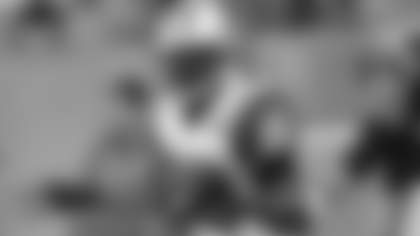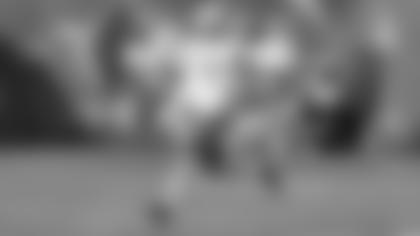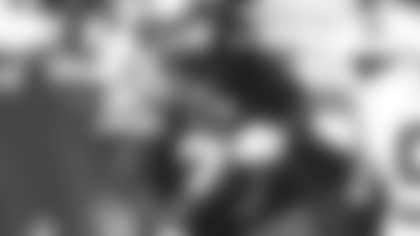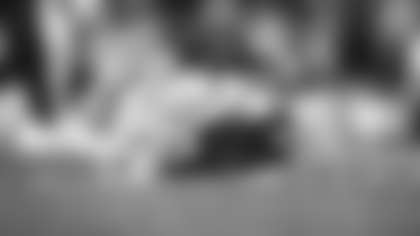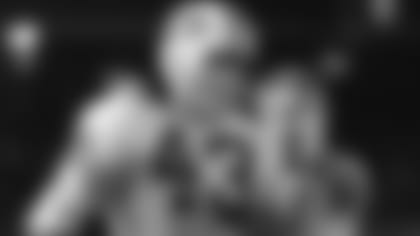
If John Dockery could hit a baseball, he wouldn't have played for the Jets.
And it's not as if he didn't try. After graduating from Harvard, the standout student-athlete from Brooklyn Prep went to spring training with the Boston Red Sox.
"(Baseball Hall of Famer) Ted Williams was in camp trying to teach everybody how to hit. And I've never forgotten. I said, 'You're such a great hitter, what's the key to hitting?' And he said, 'Just get a ball that you can hit. Don't go chasing stuff.' It was so simple. It didn't help, but at least it was interesting," Dockery said with a laugh.
An outfielder, Dockery spent two years in the Red Sox' farm system, with stops in cities that wouldn't be mistaken for Brooklyn – Pittsfield, Massachusetts; Waterloo, Iowa; and Winston-Salem, North Carolina. However…
"I didn't exactly walk away. I was let go," Dockery said. "I could run and play the field, go and get balls in the outfield, but I was never going to be a big hitter."
Well, that may have been true. But there turned out to be a Plan B. Dockery went from playing minor league baseball to playing minor league football for the Bridgeport (Connecticut) Jets of the Atlantic Coast Football League
That led to a tryout with the New York Jets in 1968.
"It was an odd occurrence in that George Paterno, brother of (Penn State head coach) Joe Paterno, and a terrific guy, was one of my high school coaches. And he was great friends with (Jets head coach) Weeb Ewbank," Dockery said. "He was talking to him one day and said, 'You know, there's this guy. He can run and he wants to play. You ought to give him a shot.'
"So, he did. He lined up a tryout at Randall's Island, and I was covering Don Maynard and George Sauer and people like that. And I said to myself, 'What am I doing out here?' But I just went out and did what I could do."
Taking an unconventional path to the NFL, Dockery impressed Eubank and the other coaches enough to be kept around, and was put on the Jets' practice squad. But being a 24-year-old rookie, something his new teammates weren't used to, Dockery wasn't certain if they were as impressed as the coaches.
"They sort of stood back from me because I was a little bit of a bizarre character who took a route to get there that was not a normal route – going from college to minor league baseball to the NFL. Especially college, I went to Harvard," Dockery said.
"So, they stood a little bit away from me in terms of like this guy's different. Is he smart or is he not smart? It was a little bit of that standoffish before we became friends. I mean, Winston Hill was a great friend and a good guy. And so was a number of the other guys. George Sauer was one of my best friends.
"There were guys that could play on that team, and I think that was often overlooked because of Namath. When people think about the Jets, they think about one or two players. But there were more than that. I mean, Joe Willie was a necessity. In a quarterback league even then, and more so now, you need a bright star in your constellation in order to win. He was that and then some."
Activated with three games left in the 1968 regular season, Dockery made his debut on December 1, a 35-17 victory over the Miami Dolphins.
"I felt a little strange being at Shea Stadium in my hometown with lots of friends and family there. And me in this uniform that looked a little bit off, 43 in green and white," Dockery said. "I guess it was just coming from A to B. I didn't know if I belonged, and all of those things that go along with doubt. Which I squeezed out of my brain as much as I could.
"I was on special teams and knew I should keep my head on a swing so I could see where people were coming from. I was tenacious to get down on the kickoffs and be one of the first ones there. I could run pretty well, so I was one of the first ones there. I re-routed the runner and someone made the tackle. So, it all went well."
Things continued to go well for Dockery and the Jets. Finishing the season with an 11-3 record, New York beat Oakland for the AFL championship, and then met Baltimore, the NFL champions, in Super Bowl III at the Orange Bowl in Miami.
The Colts were favored by 18 points. But the Jets won, 16-7.
"How often in your life do you get to play in a Super Bowl? Win a Super Bowl? And have the ring for a lifetime? The inscription on the ring is 'Poise and Execution.' If you can keep cool and execute, you're going to be OK. I was lucky to be in the right place at the right time and live some moments that very few people will get a chance to live," Dockery said.
"I can still feel the sun down in Florida and I can still feel the pulsating stadium. And I can still see Joe Willie running off the field and me not far behind him. It was just one of those moments. Being an 18-point underdog and come out on top was special. It's beyond special."
With the Jets for four seasons from 1968-71, Dockery co-led the team with Bill Baird in 1969. Each had five interceptions. He'd finish his six-year career with the Pittsburgh Steelers.
Following his playing days, the cornerback didn't walk away from the game, Dockery just moved to the sideline and the booth and worked as an analyst for CBS and NBC TV and radio.
"I was in broadcasting longer than I was in football," laughed Dockery. "I would say I was in broadcasting about 20 years, mostly on the sidelines. It was also an adventure. Some terrific people and some moments, as well. I did all kinds of things, not just football. I did the Olympics, I did the Tour de France, I did the (Kentucky) Derby, I did gymnastics. Oh, we need a guy, send him over."
Dockery and his wife, Anne, make their home in Brooklyn Heights. They have two daughters: Erin and Ciara; and three grandchildren. He is semi-retired from a company he founded in 1988 – Cambridge Services. It provides support for banking, finance, insurance, legal, and entertainment businesses in New York.
"We do back office services for a lot of the big companies," Dockery said. "We'll do mail operations. We'll do deliveries. We'll do trucking. And we'll provide those for companies around the city who want to do the outsourcing. We'll find people for them that will do the jobs that maybe some of their folks don't want to do. And it's usually cost-effective."



